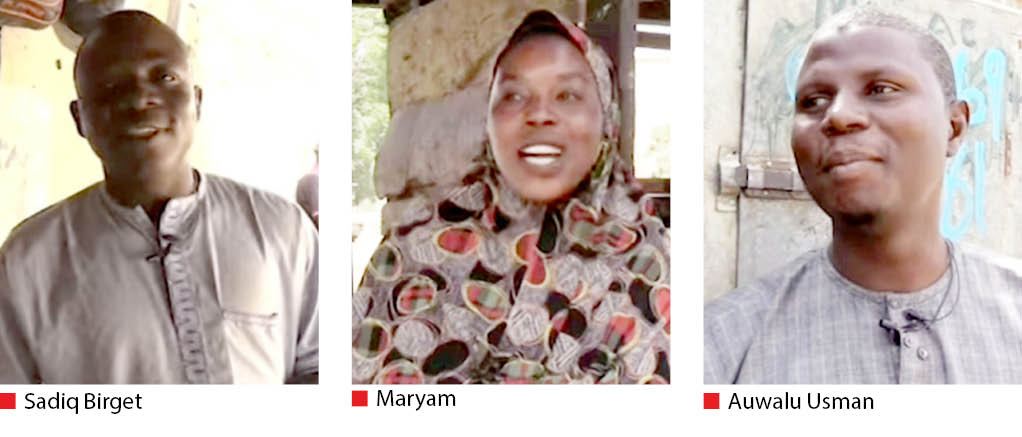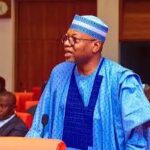The year 2023 is unforgettable for Ali Gama, a citizen of Kano State. Gama has been at the receiving end of the biting economic hardship in Nigeria. Like millions of Nigerians, including youths, Gama has endured the grueling effects of the petrol subsidy removal and the naira devaluation.
Gama said, “Buhari’s administration metaphorically beat the poor to a pulp. We were hopeful, but as soon as Tinubu came in, he did not waste time to torture Nigerians. He removed petrol subsidy at once, among other difficult policies he has introduced.
“I am a youth, but I don’t know where I am heading to. We have been disillusioned and every opportunity has been blocked. In fact, there is no safe corridor for me, but we pray to God to grant us from his mercy.”
Aside from the widespread hardship, Gama is worried over the worsening security situation in the country.
- Moses Simon: Captaining Super Eagles is more honourable than with a club
- Dwarfed by polio: Lami triumphs
He said, “It pains me. More than 100 civilians were bombed in Kaduna during a Maulud session in Tudun Biri. Apart from those killed in Maiduguri, Zamfara has turned into a killing field. The North is bleeding.”
Umar Babaginda, Auwal Usman and other youths who spoke to Daily Trust Saturday, shared the same agonising moments as Gama.
As a mechanic, Babangida watched his thriving vocation sliding into doldrums. Car owners rolled back on driving their vehicles as the price of petrol jacked up.
He said, “2023 has been very tough. Nigerians are going through hard times because of mainly two of President Tinubu’s policies: subsidy removal and naira devaluation. These two have forced businesses to fold up. It is as if this increase in fuel pump price is meant to punish us, mechanics. Car owners are no longer driving their vehicles. We are sitting idly. Some mechanics have turned into kola nut sellers or labourers.”
For Usman, his trouble is summed up in the current cost of living.
He said, “Feeding my family is now a herculean task. We barely eat.”
Gama, Babangida and Usman’s claims are not without proof. Galloping inflation, unemployment rate and abject poverty dominate Nigeria’s economy.
Inflation
On December 15, 2023, the National Bureau of Statistics (NBS) disclosed that Nigeria’s headline inflation had risen to a 20-year high of 28.2 per cent in November. With the development, food inflation rate also increased to 32.84 per cent on a year-on-year basis, which was 8.72 per cent points higher compared to the rate recorded in November, 2022 (24.13 per cent).
Altogether, the statistics estimated the number of people living in extreme poverty in Africa to reach 422 million in 2025.
Unemployment
To aggravate the situation, Nigeria’s unemployment rate rose to 4.2 per cent in the second quarter of 2023 going by the bureau’s newly adopted methodology.
NBS said the figure was a marginal increase of 0.1 per cent from 4.1 per cent recorded in Q1 2023.
The report stated that 80.4 per cent of Nigeria’s labour force in the working age population participated in the survey.
More Nigerians sliding into poverty
As a direct consequence of inflation and unemployment, the poverty level in Nigeria is worsening by the day.
According to Statista in 2023, nearly 12 per cent of the world population in extreme poverty lived in Nigeria, considering the poverty threshold at $1.90 a day.
NBS in its report earlier in the year, said 133 Nigerians, representing two-third of the population, were multidimensionally poor, lacking access to basic education, health, clean water, among others.
Tinubu moves to ‘cushion’ effect
As soon as the petrol subsidy was removed, the federal government introduced palliatives to cushion the effect. This was much later followed by the Presidential Conditional Grant Programme and the Presidential Palliative Loan Programme.
The president also said that his government would establish industrial hubs as part of effort to tackle rising youth unemployment in the country.
Tinubu said, “In the face of global challenges, my administration is committed to steering Nigeria towards self-reliance and reducing dependency on others. We envision an unprecedented level of industrial activity….?
However, experts have raised concerns that palliatives would do little to assuage the suffering of millions of poor Nigerians, calling on the Tinubu-led administration to plug revenue leakages, boost local production, create enabling environment for businesses and drive Foreign Direct Investment (FDI), among others.
In an interview with Daily Trust, a public policy expert, Dr Abimbola Oyarinu, said the N5bn palliative to each state had not had any effect on citizens because there was lack of organisation in governance which made it a herculean task to meet the expectations of citizens.
A former Director General (DG) of the Lagos Chamber of Commerce and Industry (LCCI) and Chief Executive Officer of the Centre for the Promotion of Private Enterprise (CPPE), Dr Muda Yusuf, urged the government to adopt inclusive, impactful and sustainable palliative measures, noting that the pains inflicted on citizens, especially the vulnerable, were severe.
Yusuf said, “The number of political appointees, advisers, salaries and allowances, foreign trips, etc, should be trimmed to reflect the current mood of the country. In addition to its symbolic significance, this would support the fiscal consolidation agenda of the government.”

 Join Daily Trust WhatsApp Community For Quick Access To News and Happenings Around You.
Join Daily Trust WhatsApp Community For Quick Access To News and Happenings Around You.

